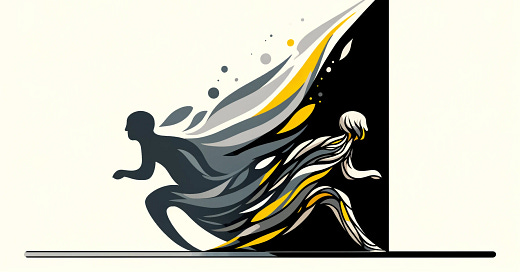You Are Not Stupid, You Are Inexperienced
Understanding the root problem behind stupidity allows us to do something about it instead of complaining.
The Treaty of Craiova was signed between Bulgaria and Romania in 1940.
According to its terms, Romania allowed Bulgaria to retake the Southern Dobruja region, which Romania had acquired in 1913 following the Second Balkan War. As compensation for investments made in the area, Bulgaria paid Romania 1 million lei.
Stupidity Stems from Lack of Experience
While reading about World War II on Wikipedia, an idea struck me. Suppose I had been negotiating the Treaty of Craiova on behalf of Bulgaria. Unaware of the past investments made in Southern Dobruja, I likely would have omitted this during the negotiations due to lack of relevant data.
In such a case, others might label me "stupid" for overlooking important details, when in fact, I was simply inexperienced. This realization made me understand that the term "stupid" is often misused, even with children, potentially harming their confidence from the start.
Stupidity can be seen as a manifestation of inexperience, which impairs our judgment. Understanding this root problem allows us to address it rather than merely complaining.
My Story
For a long time, I was labeled as stupid, a label that became part of my identity. However, in 2020, after receiving three salary increases within six months as a software developer, my self-esteem surged. I invested my earnings in coding courses to accelerate my career progression, but quickly realized the knowledge gap was too extensive, and I still depended heavily on others for solutions.
Then, in 2022, with the onset of the conflict in Ukraine, I began delving into geopolitics. Simultaneously, I started recording my thoughts on various topics in a private journal, enhancing my judgment. Having engaged with self-help content since 2016 and now exploring geopolitics, history, economics, and psychology, I began to approach human psychology from first principles.
Now, I am able to reference a broad range of domains to solve problems, trust my own judgment, and confidently critique others' arguments.
Why People Use the Word "Stupid"
Our brains, driven by survival instincts, are programmed to conserve energy, which applies to thinking processes as well. When we fail to understand someone's behavior, we might instinctively label them as "stupid."
This labeling can be a deliberate act of bullying or an unconscious behavior, often seen in parental interactions as a way to shirk responsibilities. Labeling someone as "stupid" leaves no room for improvement and can foster resentment. Recognizing this can help us focus on aiding others in refining their judgment, especially within families.
Solution
The first step toward change is refusing to accept disrespect. Even if your decision-making is flawed, no one has the right to demean you. If you rely on someone, like your parents, it's crucial to discuss this issue with them to foster understanding and build your confidence.
The second step is enhancing your judgment. A useful practice is considering the second-order effects of your actions.
As I mentioned earlier, for evolutionary reasons, our brains are programmed to conserve energy. This often leads us to overlook the consequences of our actions, which can result in negative outcomes. What distinguishes a visionary leader from an ordinary person is the ability to foresee and consider the future effects of their current actions. This foresight is crucial for making decisions that yield long-term benefits rather than immediate, but fleeting, successes.
Begin by forming opinions on various matters and documenting them in your journal. Initially, many ideas may seem trivial or incorrect, but avoid self-judgment; proficiency comes with practice.
The third step involves consuming higher quality information. Choose your sources wisely, focusing on those that offer substantial returns on attention rather than aimlessly browsing social media. Maintain a curious mindset and learn from every interaction, as everyone has something valuable to teach.
The fourth step is learning to trust your judgment. If you've historically doubted your decision-making, change takes time. Maintain a log of successful decisions in your journal and reflect on these entries to gradually reprogram your subconscious. When you recognize that your arguments are well-founded, you'll naturally begin to trust your judgment more.
In summary, the four steps are:
Stop tolerating disrespect.
Enhance your judgment.
Consume higher quality information.
Learn to trust your judgment.
This approach nurtures a mindset of possibility, shifting focus from past limitations to a hopeful vision for personal and collective growth.



